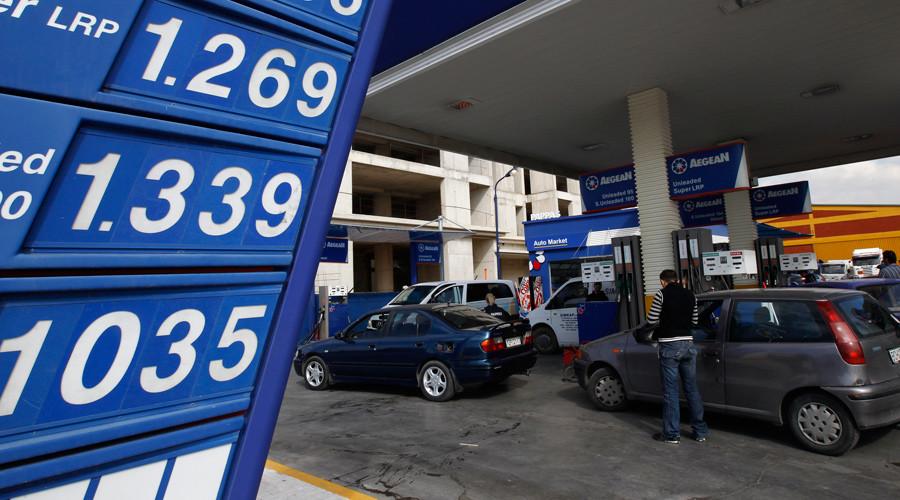What’s the big deal between Russia and the Saudis?

DOHA - Amidst the wilderness of mirrors surrounding the Syrian tragedy, a diamond-shaped fact persists: Despite so many degrees of separation, the Saudis are still talking to the Russians. Why?
A key reason is because a perennially paranoid House of Saud feels betrayed by their American protectors who, under the Obama administration, seem to have given up on isolating Iran.
The Saudis can’t intellectually understand the see-saw of incoherent Beltway policies due to the power struggle between Zionist neocons and the old establishment. No wonder they might be tempted to move to the Russian side of the fence. But for that to happen there will be many a price to pay.
So let’s talk about oil. In energy terms, an oil deal with the House of Saud would mean a lot to Russia. A deal could produce incremental oil revenue for Moscow of around $180 billion a year. The rest of the GCC does not really count: Kuwait is a US protectorate; Bahrain is a Saudi resort area; Dubai is a glitzy heroin money-laundering operation. The UAE itself is a wealthy group of pearl divers. And Qatar, as ‘Bandar Bush’ famously remarked, is “300 people and a TV station,”plus a decent airline that sponsors Barcelona.
Riyadh – paranoia included - fully took note of the Obama administration’s supposed “policy” of dumping Saudi Arabia over an alleged Iranian natural gas bonanza, which would supposedly replace Gazprom in supplying Europe. That won’t happen, however, because Iran needs at least $180 billion in long-term investment to upgrade its energy infrastructure.
Moscow for its part fully took note how Washington blocked South Stream. It’s also been trying to block Turk Stream – but that may come to nothing after Erdogan’s recent election landslide in Turkey. Additionally, Washington has been pressuring Finland, Sweden, Ukraine and Eastern Europe to weaponize further against Russia in NATO.
The King goes to Vlad
From the House of Saud’s point of view, three factors are paramount. 1) A general sense of ‘red alert’ as they have been deprived from an exclusive relationship with Washington, thus becoming incapable of shaping US foreign policy in the Middle East; 2) They have been mightily impressed by Moscow’s swift counter-terrorism operation in Syria; 3) They fear like the plague the current Russia-Iran alliance if they have no means of influencing it.
That explains why King Salman’s advisers have pressed the point that the House of Saud has a much better chance of checking Iran on all matters - from “Syraq” to Yemen - if it forges a closer relationship with Moscow. In fact, King Salman may be visiting Putin before the end of the year.
Tehran’s priority, on the other hand, is to sell as much natural gas as possible. That makes Iran a natural competitor with Gazprom (not for the moment, as most extra exports will be directed towards Asia, not Europe). In terms of natural gas, there’s no Russia-Saudi competition. Oil is a different story; a Russia-Saudi partnership would make sense in the framework of an OPEC cutback - if only they could find a deal over the Syria tragedy.
One of the untold stories of the recent Syria-driven diplomatic flurry is how Moscow has been silently working on mollifying both Saudi Arabia and Turkey behind the scenes. That was already the case when the foreign ministers of US, Russia, Turkey and Saudi Arabia met before Vienna.
Vienna was crucial not only because Iran was on the table for the first time but also because of the presence of Egypt – incidentally, fresh from recent discovery of new oil reserves, and engaging in a reinforced relationship with Russia.
The absolute key point was this paragraph included in Vienna’s final declaration: “This political process will be Syrian-led and Syrian-owned, and the Syrian people will decide the future of Syria.”
It’s not by accident that only Russian and Iranian media chose to give the paragraph the appropriate relevance. Because this meant the actual death of the regime change obsession, much to the distress of US neocons, Erdogan and the House of Saud.
That does not necessarily mean the Russia-Iran alliance agrees 100 percent on Syria. This week, IRGC commander Maj. Gen. Mohammad Ali Jafari once again explained Iran does not see any alternative to Bashar al-Assad as leader of Syria. He even acknowledged Moscow might not entirely share this view – which is exactly what Russian Foreign Ministry spokeswoman Maria Zakharova has been saying.
But that’s not the main point. The main point is the death of the regime change option, brought about by Moscow. And that leaves Putin free to further project his extremely elaborate strategy.
He called Erdogan on Wednesday to congratulate him on his and the AKP’s election landslide. This means that now Moscow clearly has someone to talk to in Ankara. Not only about Syria. But also about gas.
He called Erdogan on Wednesday to congratulate him on his and the AKP’s election landslide. This means that now Moscow clearly has someone to talk to in Ankara. Not only about Syria. But also about gas.
Putin and Erdogan will have a crucial energy-related meeting at the G20 summit on November 15 in Turkey; and there’s an upcoming visit by Erdogan to Moscow. Bets are on that the Turk Stream agreement will be – finally – reached before the end of the year. And on northern Syria, Erdogan has been forced to admit by Russian facts on the ground and skies that his no-fly zone scheme will never fly.

Slouching towards Mecca
That leaves us with the much larger problem: the House of Saud.
There’s a wall of silence surrounding the number one reason for Saudi Arabia to bomb and invade Yemen, and that is to exploit Yemen’s virgin oil lands, side by side with Israel – no less. Not to mention the strategic foolishness of picking a fight with redoubtable warriors such as the Houthis, which have sowed panic amidst the pathetic, mercenary-crammed Saudi army.
Riyadh, following its American reflexes, even resorted to recruiting Academi – formerly Blackwater - to round up the usual mercenary suspects as far away as Colombia.
It was also suspected from the beginning, but now it's a done deal that the responsible actor for the costly Yemen military disaster is none other than Prince Mohammad bin Salman, the King’s son who, crucially, was sent by his father to meet Putin face-to-face.
To compound the turmoil, the Yemen disaster has unleashed some hardcore shadow play in Riyadh involving those sidelined by the Salman reign, especially former King Abdullah’s clan. A nasty mess does not even begin to describe it.
Meanwhile, Qatar will keep crying because it was counting on Syria as a destination point for its much-coveted gas pipeline to serve European customers, or at least as a key transit hub on the way to Turkey.
Iran on the other hand needed both Iraq and Syria for the rival Iran-Iraq-Syria gas pipeline because Tehran could not rely on Ankara while it was under US sanctions (this will now change, fast). The point is Iranian gas won’t replace Gazprom as a major source for the EU anytime soon. If it ever did, or course, that would be a savage blow to Russia.
Putin and Saudi #defenseminister meet in #Russia, agree on common goals in #Syria... http://russia.trendolizer.com/2015/10/putin-and-saudi-defense-minister-meet-in-russia-agree-on-common-goals-in-syria.html …
In oil terms, Russia and the Saudis are natural allies. Saudi Arabia cannot export natural gas; Qatar can. To get their finances in order – after all even the IMF knows they are on a highway to hell - the Saudis would have to cut back around ten percent of production with OPEC, in concert with Russia; the oil price would more than double. A 10 percent cutback would make a fortune for the House of Saud.
So for both Moscow and Riyadh, a deal on the oil price, to be eventually pushed towards $100 a barrel, would make total economic sense. Arguably, in both cases, it might even mean a matter of national security.
But it won’t be easy. OPEC’s latest report assumes a basket of crude oil to be quoted at only $55 in 2015, and to rise by $5 a year reaching $80 only by 2020. This state of affairs does not suit either Moscow or Riyadh.
Meanwhile, fomenting all sorts of wild speculation, ISIS/ISIL/Daesh still manages to collect as much as $50 million a month from selling crude from oilfields it controls across “Syraq”, according to the best Iraq-based estimates.
The fact that this mini-oil caliphate is able to bring in equipment and technical experts from “abroad” to keep its energy sector running beggars belief. “Abroad” in this context means essentially Turkey – engineers plus equipment for extraction, refinement, transport and energy production.
One of the reasons this is happening is that the US-led Coalition of the Dodgy Opportunists (CDO) – which includes Saudi Arabia and Turkey - is actually bombing the Syrian state energy infrastructure, not the mini oil-Caliphate domains. So we have the proverbial “international actors” in the region de facto aiding ISIS/ISIL/Daesh to sell crude to smugglers for as low as $10 a barrel.
Saudis – as much as Russian intel - have noted how ISIS/ISIL/Daesh is able to take over the most advanced US equipment that takes months to master, and instead integrate it into their ops at once. This implies they must have been extensively trained. The Pentagon, meanwhile, sent and will be sending top military across “Syraq” with an overarching message: if you choose Russia we won’t help you.
ISIS/ISIL/Daesh, for their part, never talks about freeing Jerusalem. It’s always about Mecca and Medina.
So make no mistake; there’s much more pointing to a possible Russia-Saudi deal than meets the eye.

 RT
RT









 Trending Russia News
Trending Russia News



Geen opmerkingen:
Een reactie posten